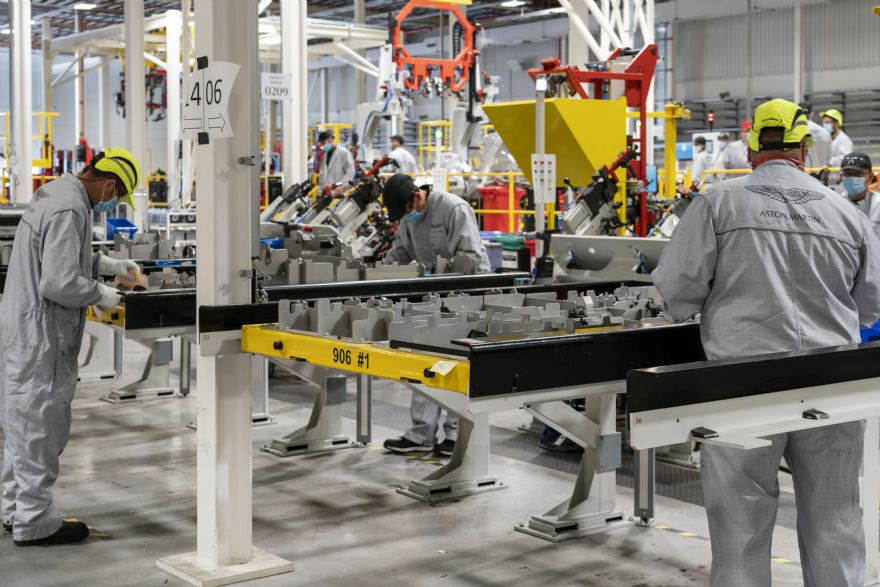
Britain’s largest manufacturers say they are prepared for life outside the European Union (EU) as the clock ticks down to the end of the transition period on 31 December, a
Lloyds Bank survey has found.
The
Business in Britain report of 200 large manufacturers found that 81% of businesses have made the necessary preparations for operating outside the bloc. Of the fifth (18%) still unprepared, 83% said Covid-19 had distracted them from putting in place the measures to protect revenues.
The findings come as the UK approaches the end of the window to negotiate a deal with the EU. The deadline for an agreement – without which the UK will move to World Trade Organisation (WTO) trading rules – is 31 October 2020.
Although most companies surveyed have prepared for life after the transition period ends, a significant proportion (44%) still report that leaving the EU without a trade deal would negatively impact business.
This compares to a third (31%) who think leaving without a deal would be positive. The survey suggests that the manufacturing sector is more divided on the issue of Brexit than others.
Of the third (31%) who think no-deal would be good for business, two thirds (61%) cite an expectation of increased demand from UK-based buyers as the main driver for their optimism. Half (52%) say it will allow them to be more competitive with EU rivals on pricing.
Among the 44% who forecast that leaving the EU without a trade deal would negatively affect their business, two-thirds (60%) say that trading on WTO terms would lead to higher tariffs on exports which would hit profits.
A similar proportion (59%) say barriers to importing the resources they need for manufacturing would have a detrimental impact.
The report surveyed manufacturers with turnovers above £50 million. Over half (53%) turnover more than £500 million annually, while nine in ten (88%) employ more than 250 people.
In a show of resilience, 88% of respondents expect their revenues to return to pre-pandemic levels by 2022 and 37% expect to create jobs next year – more than those which expect to cut staffing levels (32%).
Huge challengesHuw Howells, Lloyds Bank head of manufacturing and industrials, said: “Britain’s manufacturers remain world-leading. In the face of huge challenges this year, what is clear is that larger manufacturers have more broadly prepared themselves for whatever the UK’s future relationship with the EU becomes.
“In spite of their preparations, larger manufacturers remain uncertain and concerned with regard to the impact of Brexit which, coupled with ongoing Covid-19 impacts, means that their resilience will continue to be tested in the short term.
He concluded: ‘It is unsurprising that Covid-19 looms large given the impact it has had in closing borders, disrupting supply chains and forcing factories to temporarily shut down operations. Yet most tell us they forecast a return to pre-pandemic levels by 2022 – and some will create more jobs next year in the process. It is a reassuring glimmer of light in what has been a torrid time.”
Matt Tichon, vice president of industry strategy at
LLamasoft , an AI-enabled supply chain solutions provider, commented: “While it comes as a happy surprise to hear that a high number of manufacturers feel prepared for life after Brexit, it is still concerning that the other 19% are not. In March, when disruptions caused by the Vovid-19 pandemic started to accelerate uncontrollably, many manufacturers around the globe suffered hugely — this can’t and should not happen again.
“All manufacturers must consider the resiliency of their supply chains and ensure that they have the necessary technology in place to help plan for these unforeseeable disruptions. From supplier changes to shortages and new regulations causing traffic pile-ups at the border, digital twin technology will help identify, replicate and analyse the entire end-to-end supply chain for potential pain points.
“Given the uncertainty that Brexit poses, it is crucial that manufacturers have options when sourcing materials. Otherwise, there is a huge risk of shortages in materials essential to the production of goods.
“Digital twin technology can enable them to test out various solutions to this problem, before implementing them in the real world. With this, manufacturers can ensure they are ready once the clock hits midnight on 1 January, 2020.”